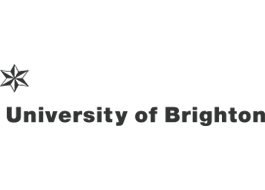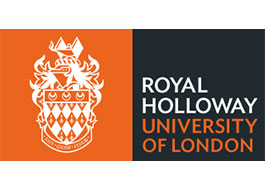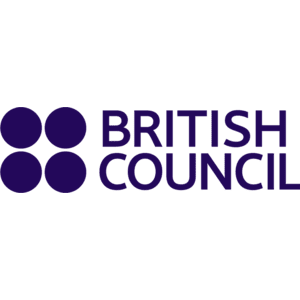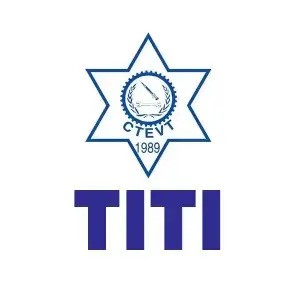Are you a Nepalese student dreaming of pursuing higher education abroad? Look no further than the United Kingdom! With its prestigious universities, rich cultural heritage, and world-class education system, the UK offers an ideal destination for Nepalese students seeking an international education. Studying in the UK can be a life-changing experience for Nepalese students. Not only does it provide access to high-quality education, but it also opens doors to exciting career opportunities and personal growth. An international education equips you with the skills and knowledge needed to thrive in a globalized world, making you a valuable asset in the job market.
Ample International Education
Welcome to Ample International Education, your one-stop destination for students aspiring to study in the United Kingdom. We understand that embarking on your educational journey abroad can be overwhelming, but fret not! Our team of experienced consultants is here to guide you every step of the way. With years of expertise in the field, Ample is dedicated to assisting Nepalese students in achieving their academic goals in the UK. We believe that education opens doors to endless opportunities, and our mission is to make the process as smooth and stress-free as possible.
1. Introduction: Exploring Higher Education in the UK
1.1 Overview of the UK Higher Education System
When it comes to pursuing higher education, the United Kingdom stands out as a top choice for students from all over the world. With a rich academic tradition and a well-established higher education system, the UK offers a multitude of benefits for students seeking quality education and international exposure. The UK higher education system consists of universities, colleges, and institutions that are renowned for their academic excellence, innovative teaching methods, and cutting-edge research. It is known for its commitment to providing students with a high standard of education, ensuring their personal and professional growth.
1.2 Importance of Choosing the Right Country
Choosing the right country for your higher education is a crucial decision that can significantly impact your future. It's essential to consider various factors, such as the quality of education, reputation of institutions, cultural diversity, and career opportunities. By opting for the UK as your study destination, you open yourself up to a world of opportunities. The UK's education system is highly respected globally, which means your degree will carry immense value and recognition. Additionally, studying in the UK exposes you to a vibrant and multicultural environment that fosters personal growth and helps develop a global mindset.
2. Services Offered by Ample Education
2.1 Academic Counseling and Course Selection
At our education consultancy, we provide a comprehensive range of services to ensure your journey towards studying in the UK is smooth sailing. Our team of expert consultants will assist you in making informed decisions about your academic path, helping you choose the right courses that align with your goals and interests.
2.2 University Application Assistance
We understand that university applications can be daunting, which is why we offer extensive support throughout the entire process. Whether it's checking application requirements, organizing and reviewing documents, or preparing personal statements and essays, our consultants will be there to guide you every step of the way.
2.3 Guidance for Document Preparation
Rest assured, we've got your back regarding document preparation. From transcripts and recommendation letters to visa requirements, we'll make sure you have all the necessary paperwork in order, leaving you with one less thing to stress about.
2.4 Eligibility Criteria and Application Process
Each scholarship program may have its own set of eligibility criteria and application process. It is crucial to thoroughly research and understand the requirements before applying. This ensures you are eligible for the scholarships you are applying for and increases your chances of securing funding. Our education consultancy provides guidance and support in navigating through these criteria and application processes.
2.5 Tips for Writing a Strong Scholarship Application
Writing a strong scholarship application is essential to stand out from the competition. It's important to showcase your achievements, goals, and aspirations clearly and convincingly. Additionally, highlighting any unique experiences or challenges you have overcome can greatly strengthen your application. Our team of experts can provide valuable tips and assistance in crafting a compelling scholarship application.
2.6 English Language Support Services
Whether you need assistance with improving your English language skills or require additional support during your studies in the UK, our education consultancy provides English language support services. These services include language workshops, tutoring, and guidance to help students successfully adapt to the academic and social environment. Commonly accepted tests include the IELTS (International English Language Testing System) and TOEFL (Test of English as a Foreign Language).
3. Academic Excellence
3.1 Reputation of UK Universities
One of the major draws of studying in the UK is the reputation of its universities. The UK is home to some of the world's most prestigious institutions, including the University of Oxford, the University of Cambridge, and Imperial College London. This reputation is built on centuries of academic excellence, attracting top faculty members and producing exceptional graduates.
Whether you choose to study medicine, engineering, business, or the arts, UK universities offer comprehensive and rigorous programs that ensure you receive a quality education that is respected worldwide.
Here is the list of universities affiliated with us:
UK University | Ranking in the UK |
University of Liverpool | 24 |
University of Leicester | 38 |
Swansea University | 40 |
Aston University Birmingham | 41 |
University of Chester | 61 |
University of Plymouth | 64 |
Coventry University | 69 |
University of Hull | 76 |
University of Hertfordshire | 83 |
University for the Creative Arts | 87 |
Birmingham City University | 90 |
University of Roehampton | 91 |
Robert Gordon University Aberdeen | 92 |
Brunel University London | 95 |
Canterbury Christ Church University | 106 |
De Montfort University | 109 |
University of Greenwich | 110 |
London South Bank University | 113 |
University of Northampton | 115 |
University of East London | 123 |
University of Bedfordshire | 126 |
University of the West of Scotland | 128 |
Wrexham Glyndwr University | 130 |
3.2 Quality Assurance and Accreditation
Another advantage of studying in the UK is the rigorous quality assurance and accreditation processes that institutions undergo. The UK maintains high standards of academic quality through independent assessments and reviews carried out by organizations like the Quality Assurance Agency for Higher Education (QAA). Accreditation by such bodies ensures that the programs and courses offered by UK universities meet strict academic criteria, giving students confidence in the quality and value of their education.
3.3 Research Opportunities and Facilities
The UK boasts an impressive research culture and offers abundant opportunities for students to engage in cutting-edge research projects. Many universities have strong ties with industry partners, fostering collaborations that allow students to work on real-world challenges. Furthermore, UK universities invest heavily in research facilities and resources, providing students with access to state-of-the-art laboratories, libraries, and equipment. This emphasis on research not only enhances your academic experience but also prepares you for a career in innovation and development.
4. Admission Process and Requirements
Application Process for the Visa
Choose the university and course of your choice, fill in the application form and wait for your offer letter.
After receiving the offer letter, pay your initial tuition deposit to the university.
Receive your Confirmation of Acceptance for Studies (CAS), which is an electronic document having a 14-digit unique reference number. This number is required while applying for a student visa.
Complete your medical and police reports.
Apply for your UK study visa; SI-UK offers expert visa application support services, ensuring the application succeeds on the first try
Submit the visa application form and pay the visa application fees along with all the required documents, such as the passport, CAS, proof of English language proficiency, and bank statement.
Next up, you will go through an interview round where the officers ask you about the university, your course choice and your plans for the future.
Lastly, you need to pay for the biometrics and health charges.
4.1 Overview of the Admission Process
Navigating the admission process can be tricky, especially when you're unfamiliar with the requirements. That's where we come in to make your life easier. We'll provide you with a comprehensive overview of the admission process, ensuring you're well-prepared every step of the way.
4.2 Academic Requirements and Eligibility
When it comes to academic requirements, we'll guide you through the necessary qualifications and eligibilities needed to gain admission to your desired universities in the UK. Our consultants are well-versed in the entry criteria, ensuring you meet all the necessary prerequisites.
4.3 English Language Proficiency Requirements
English language proficiency is a crucial aspect of your application, and we'll help you navigate the requirements. From IELTS to TOEFL, we'll guide how to meet the language proficiency standards set by UK universities.
English Language Score
English Language Test | Undergraduate | Postgraduate |
IELTS | 6 – 5.5 | 6.5 – 6.0 |
PTE | 50-59 | 59-74 |
4.4 Application Deadlines and Important Dates
To avoid missing out on crucial deadlines, we'll keep you informed about application timelines and important dates. We understand the importance of being organized and timely, so you can trust us to keep you on track.
Now that you're equipped with the knowledge about our consultancy, the benefits of studying in the UK, the services we offer, and the admission process, you're ready to embark on your educational journey with confidence. Get in touch with us today, and let us help you turn your dreams into reality!
5. Wide Range of Courses
5.1 Popular Fields of Study in the UK
From traditional subjects like medicine, law, and engineering to emerging fields like artificial intelligence, data science, and renewable energy, the UK offers a wide range of courses across various disciplines. Whatever your academic interest may be, you are likely to find a program that aligns with your passion in the UK.
Best courses to study in UK for Nepalese Students
5.2 Specializations and Niche Programs
In addition to popular fields of study, the UK also offers specialized and niche programs that allow students to delve deeper into their areas of interest. Whether you're interested in studying Shakespearean literature, fashion design, marine biology, or even brewing and distilling, UK institutions cater to diverse interests and provide unique learning opportunities.
5.3 Flexibility in Course Selection
Flexibility is a key feature of the UK higher education system. Universities offer modular programs, allowing students to choose from various modules and tailor their courses to suit their interests and career goals. This flexibility empowers students to explore different subjects, combine disciplines, and customize their learning experience.
6. Career Opportunities
6.1 Professional Development and Industry Connections
Studying in the UK not only enhances your academic knowledge but also equips you with the skills and resources needed to thrive in your chosen field. Universities in the UK prioritize the development of transferable skills such as critical thinking, problem-solving, and teamwork, which are highly valued by employers across industries. UK universities also foster strong ties with industries, providing students with opportunities for internships, guest lectures, and industry projects. These connections enhance your employability and allow you to gain practical experience alongside your studies.
6.2 Internship and Work Placement Opportunities
Internships and work placements are integral parts of many UK courses, offering students the chance to gain hands-on experience and practical skills in their chosen field. These opportunities provide valuable insights into the industry and help build a professional network, which can be crucial for securing future employment. The UK's strong economy and business environment provide a wealth of internship and work placement opportunities, allowing students to apply their knowledge in real-world settings.
6.3 Alumni Network and Job Placement Support
Once you graduate from a UK university, you become part of a vast and influential alumni network. This network can serve as a valuable resource for job hunting, mentorship, and networking opportunities. UK universities also offer comprehensive job placement support, including career fairs, counseling services, and guidance on CV writing and interview skills. Choosing the UK for higher education not only enables you to gain a world-class education but also opens doors to a global network of professionals and career opportunities.
In conclusion, the UK offers a myriad of benefits for Nepalese students seeking higher education abroad. From prestigious universities and quality education to diverse course options and career prospects, studying in the UK provides a transformative and enriching experience that prepares you for success in today's globalized world. So, why not embark on this exciting journey to the land of academic excellence and endless possibilities?
Expenses
Living Expenses
Particulars | Expenses (Per Month) |
Off-Campus Accommodation | £408 |
On-Campus Accommodation | £472 |
Transportation | £65 |
Food | £360 |
Utilities | £189 |
Entertainment | £40 |
Groceries | £28 |
Clothes | £64 |
Total Cost of Living with Off-Campus Accommodation | £1,154 |
Total Cost of Living with On-Campus Accommodation | £1,218 |
Housing Expenses
Average monthly cost of living in the UK for students | London | Other Cities |
University Residence | £ 727 | £ 515 |
Private Housing | £ 848 | £ 505 |
Utility Bills | £ 45 | £ 40 |
Transportation Expenses
City | Average Monthly Costs (in £) |
London | 56 |
Manchester | 47 |
Birmingham | 45 |
Liverpool | 45 |
Leads | 43 |
Miscellaneous Expenses
Items | Once Off Cost (in £) |
Clothes | 30.34 |
Insurance | 50.57 |
Stationery | 20.23 |
Household Items | 30.34 |
7. Scholarship and Funding Opportunities
Studying abroad can be quite expensive, but don't let that discourage you from considering the UK for your higher education. The UK offers a range of scholarship and funding opportunities that can make pursuing a degree more affordable.
7.1 Government Scholarships and Grants
The UK government understands the value of international education and offers various scholarships and grants to support students from around the world. Nepalese students can explore options such as the Chevening Scholarship, which provides full financial support for a master's degree, or the Commonwealth Scholarships, awarded to exceptional students from Commonwealth countries. These opportunities can greatly alleviate the financial burden of studying in the UK.
7.2 University Scholarships and Bursaries
In addition to government scholarships, many UK universities offer their scholarships and bursaries specifically for international students. These can range from partial tuition fee waivers to fully funded scholarships. Make sure to check with individual universities for the opportunities available to Nepalese students. These scholarships can significantly contribute to making your education in the UK more affordable.
7.3 Part-time Work and Financial Aid
Another way to support your studies in the UK is through part-time work. The UK allows international students to work part-time during term-time and full-time during holidays. This can help you cover your living expenses and gain valuable work experience. Additionally, universities often have financial aid programs that provide loans or grants to students facing financial difficulties. These options can be explored to ensure financial stability throughout your education journey in the UK.
8. Cultural Diversity
One of the most exciting aspects of studying in the UK is the opportunity to immerse yourself in a vibrant and inclusive environment that celebrates cultural diversity.
8.1 Multi-cultural Campus Life
UK universities are known for their diverse student populations, with students from all corners of the globe studying side by side. This multicultural environment creates a unique and enriching atmosphere where you can learn from people of different backgrounds, share experiences, and develop a global network of friends. It's a chance to broaden your horizons and gain a deeper understanding of different cultures.
8.2 Exposure to Different Perspectives and Ideas
Studying in the UK exposes you to a wealth of different perspectives and ideas. Through engaging with students and professors from diverse backgrounds, you'll gain a more well-rounded education and develop a global mindset. Exposure to different ways of thinking will enhance your academic experience and prepare you to thrive in an interconnected world.
8.3 Celebrating Nepalese Culture in the UK
While studying in the UK, you won't have to leave your Nepalese culture behind. The UK has a vibrant Nepalese community, and various cultural events and festivals are celebrated throughout the year. You can actively participate in these events, join Nepalese student societies, and connect with fellow Nepalese students to create a sense of home away from home. The UK offers the perfect blend of cultural diversity and a supportive environment for Nepalese students.
9. Support Services
Moving to a new country for higher education can be both exciting and challenging. Fortunately, the UK offers excellent support services to ensure a smooth transition and a successful journey.
9.1 Pre-arrival Guidance and Assistance
Before you even arrive in the UK, universities provide pre-arrival guidance and assistance to help you with your preparations. They offer detailed information about visa applications, accommodation options, and academic requirements. This support ensures that you feel confident and well-prepared as you embark on your UK education adventure.
9.2 Academic Support and Student Services
Once you begin your studies, UK universities offer a wide range of academic support and student services. These may include dedicated academic advisors, study skills workshops, language support, and career guidance. You'll have access to resources and professionals who can help you excel academically and make the most of your university experience.
9.3 Health and Well-being Support
Your well-being is of utmost importance, and UK universities prioritize it. They provide extensive health and well-being support services, including counseling services, mental health support, and medical facilities on campus. Knowing that you have a reliable support system in place can give you peace of mind and enable you to focus on your studies.
Why the UK is an Ideal Destination for Nepalese Students?
Choosing the UK for your higher education is an excellent decision for Nepalese students. With various scholarship opportunities, a vibrant and inclusive environment, and comprehensive support services, the UK provides an ideal setting for personal and academic growth. So, pack your bags, embrace the adventure, and get ready to embark on an unforgettable educational journey in the UK. Cheers to new beginnings!
FAQ
1. Can Nepalese students work part-time while studying in the UK?
Yes, Nepalese students studying in the UK can work part-time during their studies. However, there are certain restrictions and guidelines set by the UK government. Typically, students are permitted to work up to 20 hours per week during term time and full-time during holidays. It is important to ensure that the work hours do not interfere with academic commitments and to comply with the visa regulations.
2. What are the post-study options for Nepalese students after completing their studies in the UK?
Upon completing their studies, Nepalese students have various post-study options in the UK. They can explore opportunities to gain work experience through internships, graduate schemes, or employment. Depending on eligibility, Nepalese graduates may also consider applying for a work visa, such as the Tier 2 (General) Visa, which allows them to work in the UK for a specific period. Alternatively, some students may choose to return to Nepal and apply their acquired skills and knowledge in their home country. It is important to stay informed about the latest immigration regulations and consult with relevant authorities for accurate information regarding post-study options.
3. How can an education consultancy help Nepalese students in their journey to study in the United Kingdom?
Education consultancies provide a range of services to assist Nepalese students in their pursuit of higher education in the UK. They offer academic counseling, help with university applications and personal statements, provide guidance on document preparation, and offer support throughout the admission process. They also assist with test preparation, offer information on scholarships and financial aid opportunities, and guide students through the student visa application process.
4. What are the benefits of studying in the United Kingdom for Nepalese students?
The United Kingdom is known for its world-class universities and esteemed academic programs. Studying in the UK provides Nepalese students with access to a high-quality education system and excellent career opportunities. Additionally, the cultural diversity and vibrant student life in the UK offer valuable experiences and personal growth. The UK's strong reputation in various fields of study further enhances the prospects for future employment and global networking.
5. Are there any scholarships or financial aid opportunities available for Nepalese students?
Yes, there are multiple scholarships and financial aid options available for Nepalese students who wish to study in the United Kingdom. Education consultancies can help students explore these opportunities and provide guidance on eligibility criteria and the application process. Many universities and institutions in the UK offer scholarships specifically for international students, including those from Nepal, based on academic merit, financial need, or specific areas of study.

























